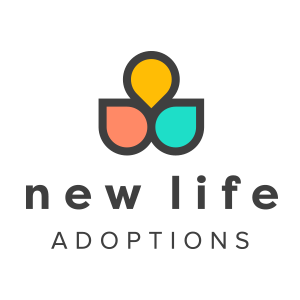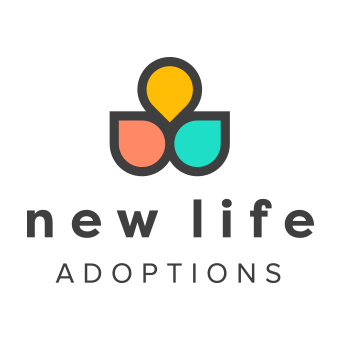Are you the adoptive parent of a teen or tween? Congratulations!… Or should I say good luck? Many parents face a roller-coaster of emotions as their adolescent is starting to separate from them. During these years they begin to rely more on friendships and forming their identity. Although it may feel rocky, these are all normal parts of being a teenager.
Forming Identity
As Holly van Gulden and Lisa M. Bartels-Rabb share in their book, Real Parents, Real Children: Parenting the Adopted Child, “Defining one’s identity and separating from the family physically and emotionally are perhaps the two greatest tasks of adolescence” (214). The teen and tween years can be challenging for any family, but this can be especially true for adoptive families. Children who are adopted need to process their adoption at every stage of development. The teen and tween years are no exception. It is common for adolescents to relate to their birth parents more, especially as they separate from their adoptive parents.
Children who are adopted need to process their adoption at every stage of development. The teen and tween years are no exception.
Just Like My Birth Parents
As teenagers distance themselves from their adoptive parents, “Rather than integrating aspects of both birth and adoptive parents and coming up with an identity that is uniquely theirs, [adopted] teens often do all they can to move as far as possible from their image of their adoptive parents to become exactly like their image of their birth parents” (van Gulden and Bartels-Rabb, 216).
When teens do not have much information about their birth parents, they may overly relate to the few things they do know, thinking, “We must have that in common.” This can be a positive association when there is information available about the interests and hobbies of birth parents. However, it can become tricky if all the teenager knows about their birth parents is their choice to participate in sexual behaviors or that they actively used drugs or alcohol. This can lead to seeking these behaviors out in order to build a connection to their birth parents. “Teens need to know that their birth parents were neither perfect nor perfectly horrible” (van Gulden and Bartels-Rabb, 216). Again, teens may assume that they have these traits in common and want to explore any possible similarities to their birth family that they can.
Seeking Information
Don’t wait for your teen to bring up the topic of their adoption or birth parents. Even if they are not talking about their birth parents, they are likely thinking about them and searching for a connection to what they know. When there is little to no information available about an adopted teen’s birth parents, it can be vital to have open conversations about the positive aspects that are known, reach out to the adoption agency to receive more information, and be an advocate for seeking openness and information if your teen is interested in having contact with his or her birth parents.
Don’t wait for your teen to bring up the topic of their adoption or birth parents. Even if they are not talking about their birth parents, they are likely thinking about them and searching for a connection to what they know.
Searching for Birth Parents
As adopted teens search for their identity, they often wonder more and more about their birth family. There are often many questions that can’t be answered with the information available. Van Gulden and Bartels-Rabb suggest that, “By late adolescence, identity issues and curiosity lead some adopted teens to search for their birth parents. Search can be scary and frustrating for everyone involved—the child, the adoptive parents, and the birth parents, once found.” They go on to share, “Despite the many fears, adoptive parents need to support their children’s choice to search for their birth parents. But no matter what your child’s age, you need to give clear behavioral and verbal messages that he or she is and always will be your son or daughter and part of your family” (229). If you need more guidance on what supporting your child in searching for their birth parents may look like, check out the book, It’s Not About You: Understanding Adoptee Search, Reunion & Open Adoption.
Adolescents may have a variety of motivations for searching for their birth family. No matter the reason, it is important that they have a good understanding of all the possible outcomes. Not every search ends the way you hope or expect. “No matter what the young person decides now or later about searching, the overriding objective must be to heal: to grieve the loss, find resolution, and come out of it all with a positive sense of self” (van Gulden and Bartels-Rabb 229).
What Now?
Van Gulden and Bartels-Rabb advise that, “Whenever an adopted teen is acting out in severe ways, assume that adoption issues are involved, and then rule out adoption if it proves not to be a factor. It is better to be wrong than to have overlooked the cause” (239). This may all sound overwhelming, but there is hope!
One way to help navigate this time is by utilizing an adoption competent therapist. The adolescent years are the timeframe in which adoptive families seek the help of therapy most often. This is a normal and healthy thing to do. It can also be very beneficial for the adolescent who is forming their identity.
The adolescent years are the timeframe in which adoptive families seek the help of therapy most often.
No matter where you are at in your parenting journey, know that we are here to help support you. We can connect you with resources and help with other post adoption services. If you are not sure what to do next in your current situation, contact us today.
Resources
- Beneath the Mask: Understanding Adopted Teens by Debbie Riley and John Meeks
- Beneath the Mask: For Teen Adoptees: Teens and Young Adults Share Their Stories by the Center for Adoption Support and Education
- It’s Not About You: Understanding Adoptee Search, Reunion & Open Adoption edited by Brooke Randolph
- Parenting in the Eye of the Storm: The Adoptive Parent’s Guide to Navigating the Teen Years by Katie Naftzger
- MN Adopt’s Adoption Competent Therapist List
Reference
Van Gulden, Holly, and Bartels-Rabb, Lisa M. Real Parents, Real Children: Parenting the Adopted Child. The Crossroad Publishing Company, 1993.




